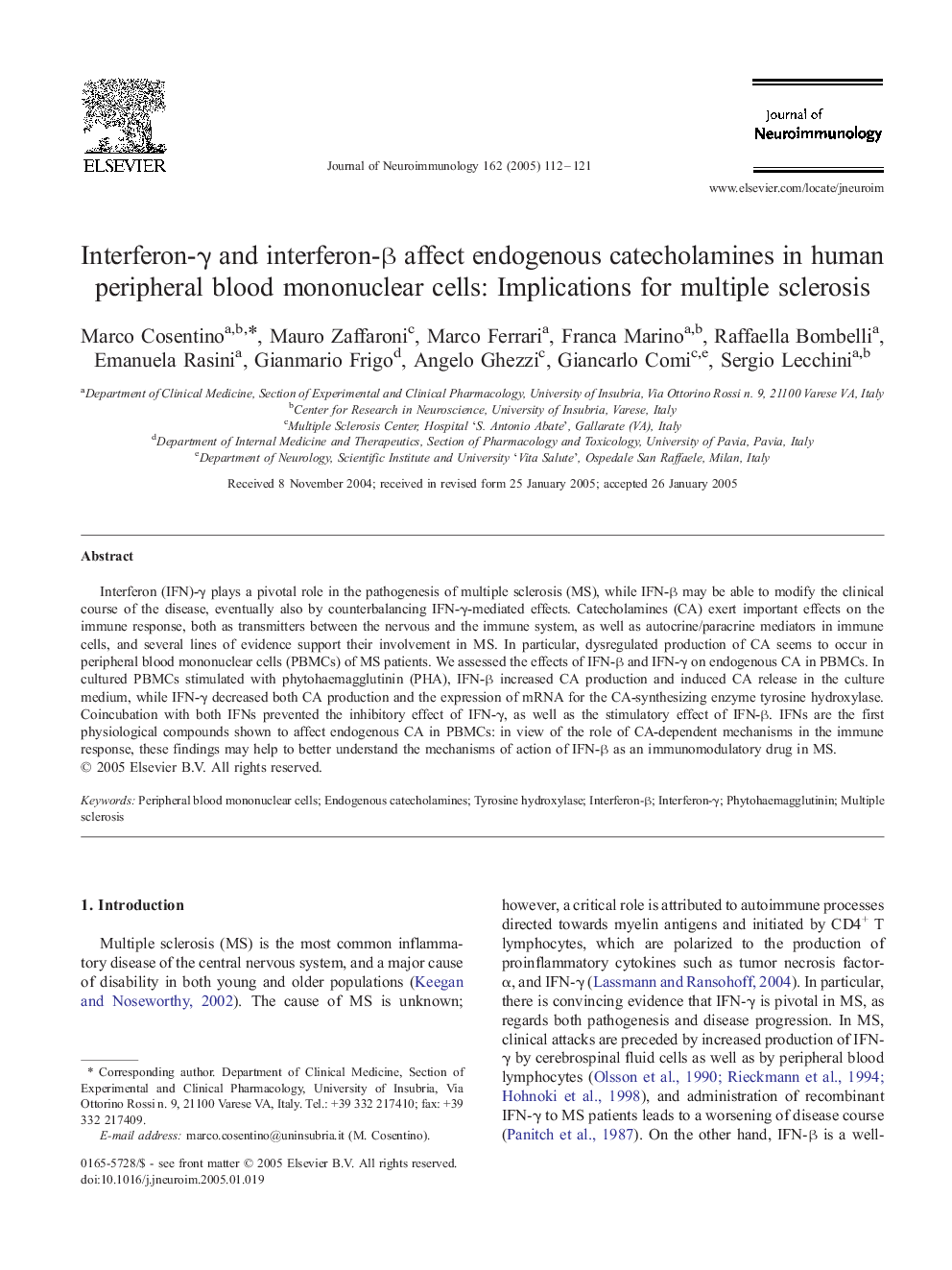| کد مقاله | کد نشریه | سال انتشار | مقاله انگلیسی | نسخه تمام متن |
|---|---|---|---|---|
| 9194657 | 1580508 | 2005 | 10 صفحه PDF | دانلود رایگان |
عنوان انگلیسی مقاله ISI
Interferon-γ and interferon-β affect endogenous catecholamines in human peripheral blood mononuclear cells: Implications for multiple sclerosis
دانلود مقاله + سفارش ترجمه
دانلود مقاله ISI انگلیسی
رایگان برای ایرانیان
کلمات کلیدی
موضوعات مرتبط
علوم زیستی و بیوفناوری
ایمنی شناسی و میکروب شناسی
ایمونولوژی
پیش نمایش صفحه اول مقاله

چکیده انگلیسی
Interferon (IFN)-γ plays a pivotal role in the pathogenesis of multiple sclerosis (MS), while IFN-β may be able to modify the clinical course of the disease, eventually also by counterbalancing IFN-γ-mediated effects. Catecholamines (CA) exert important effects on the immune response, both as transmitters between the nervous and the immune system, as well as autocrine/paracrine mediators in immune cells, and several lines of evidence support their involvement in MS. In particular, dysregulated production of CA seems to occur in peripheral blood mononuclear cells (PBMCs) of MS patients. We assessed the effects of IFN-β and IFN-γ on endogenous CA in PBMCs. In cultured PBMCs stimulated with phytohaemagglutinin (PHA), IFN-β increased CA production and induced CA release in the culture medium, while IFN-γ decreased both CA production and the expression of mRNA for the CA-synthesizing enzyme tyrosine hydroxylase. Coincubation with both IFNs prevented the inhibitory effect of IFN-γ, as well as the stimulatory effect of IFN-β. IFNs are the first physiological compounds shown to affect endogenous CA in PBMCs: in view of the role of CA-dependent mechanisms in the immune response, these findings may help to better understand the mechanisms of action of IFN-β as an immunomodulatory drug in MS.
ناشر
Database: Elsevier - ScienceDirect (ساینس دایرکت)
Journal: Journal of Neuroimmunology - Volume 162, Issues 1â2, May 2005, Pages 112-121
Journal: Journal of Neuroimmunology - Volume 162, Issues 1â2, May 2005, Pages 112-121
نویسندگان
Marco Cosentino, Mauro Zaffaroni, Marco Ferrari, Franca Marino, Raffaella Bombelli, Emanuela Rasini, Gianmario Frigo, Angelo Ghezzi, Giancarlo Comi, Sergio Lecchini,